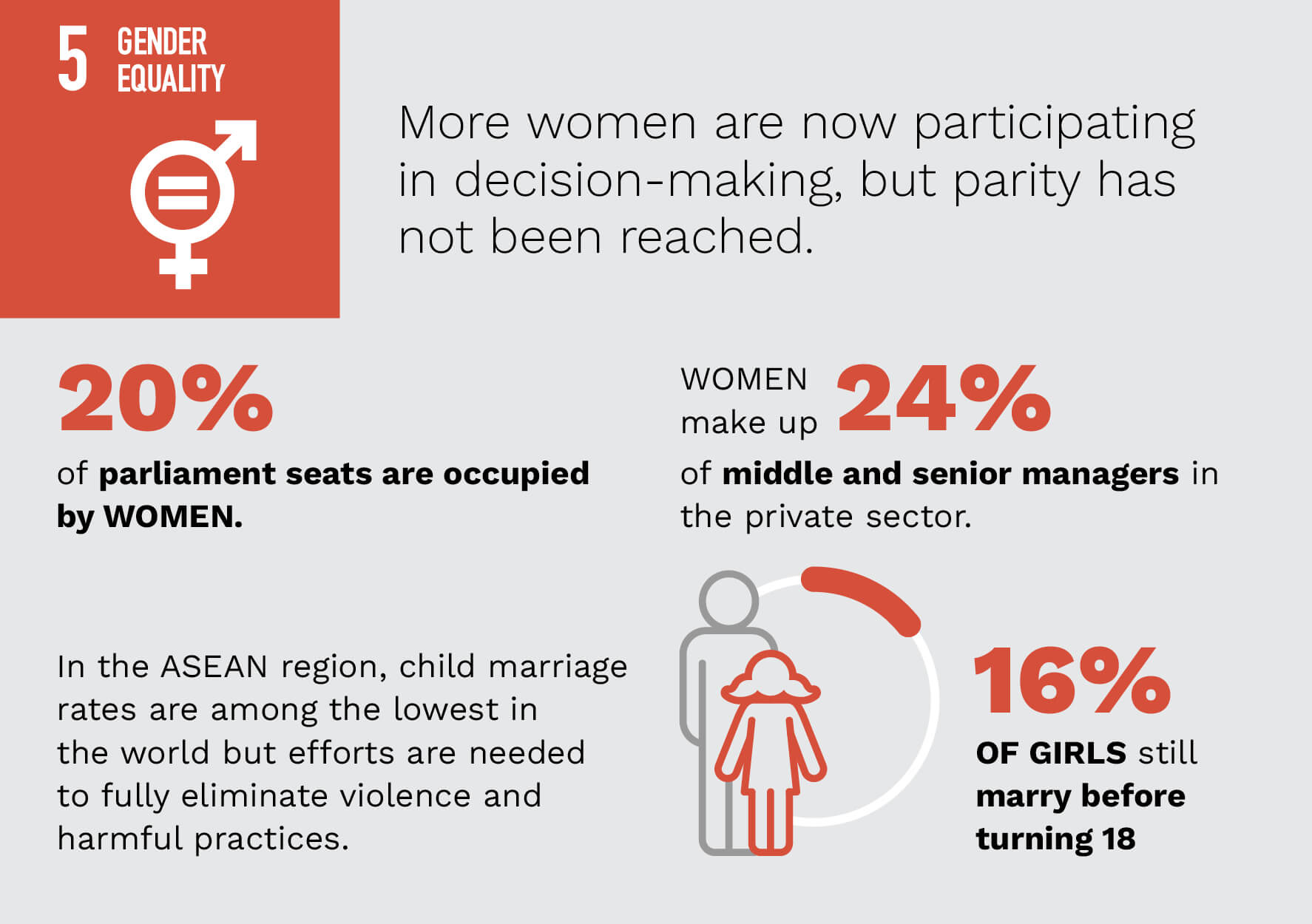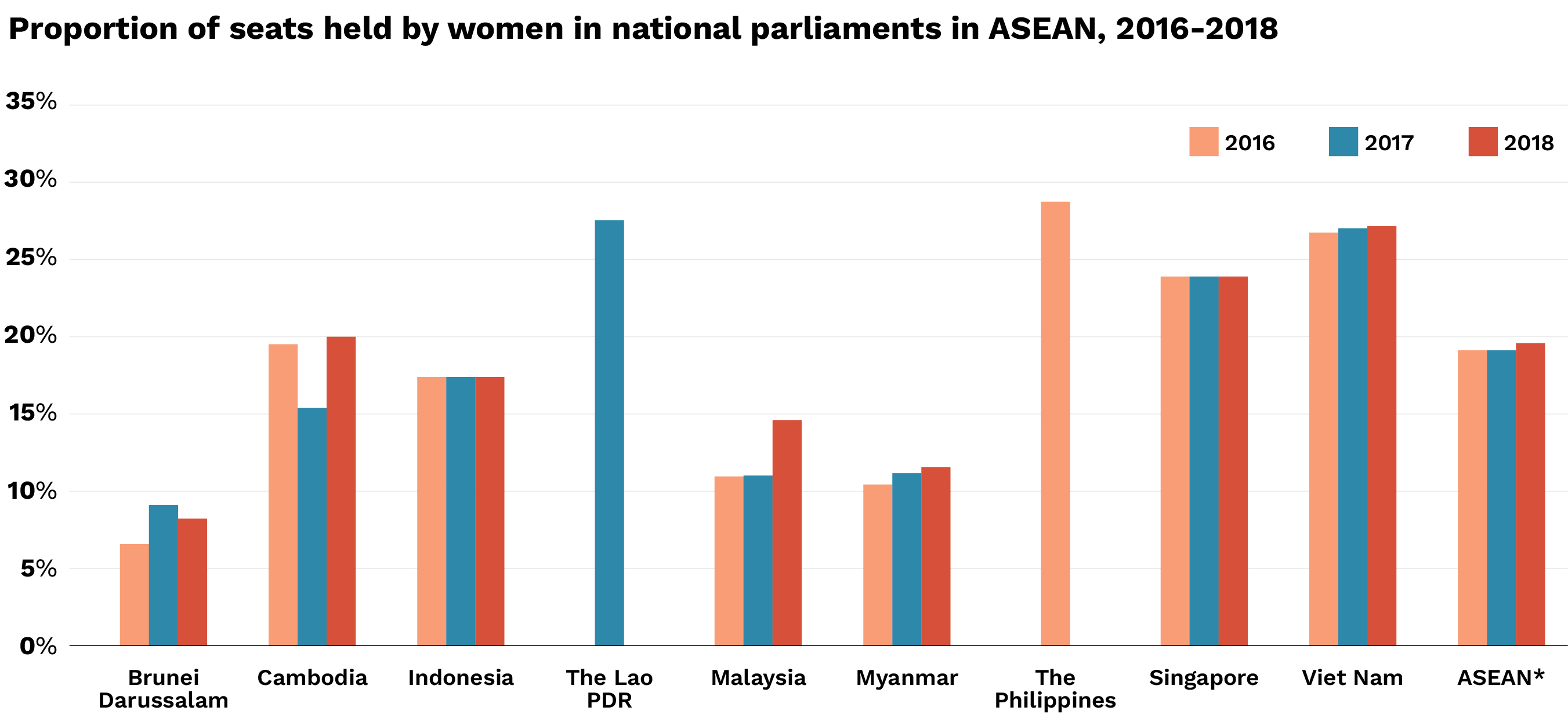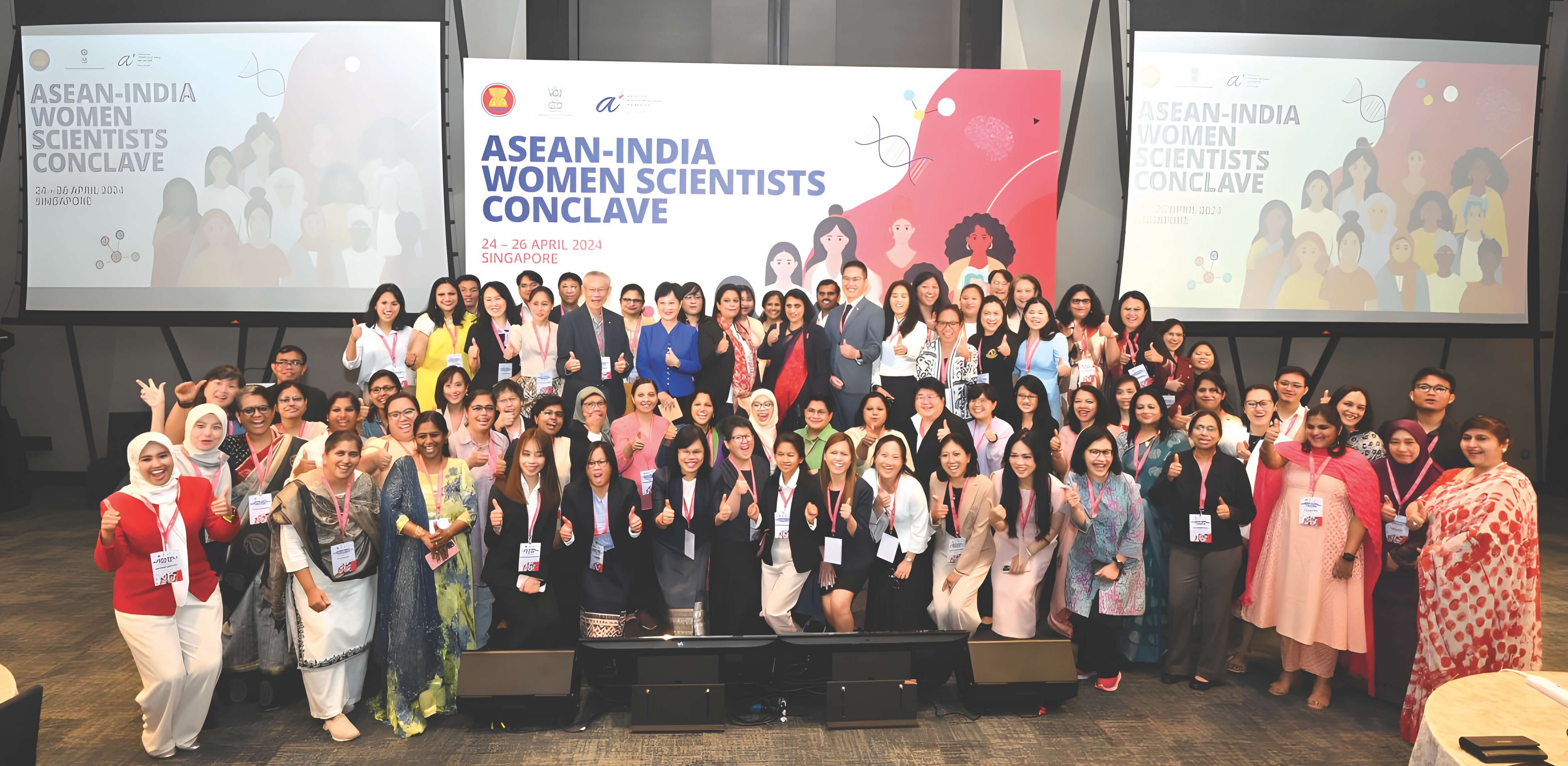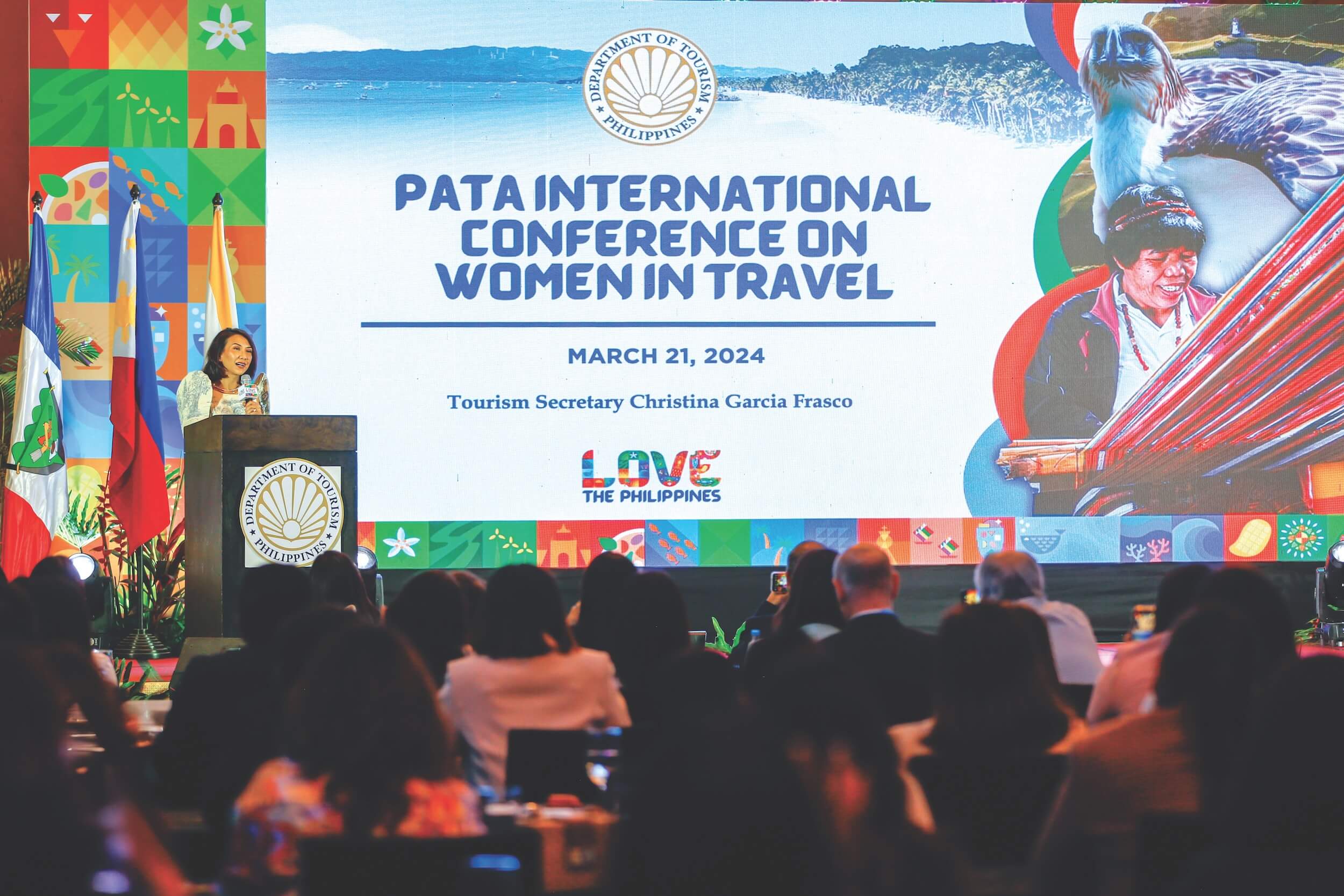




The 2022 ASEAN SDG Snapshot Report highlighted ASEAN’s progress in achieving the Sustainable Development Goals (SDGs) despite the challenges brought about by the COVID-19 pandemic. However, due to the pandemic, the region is likely to fall short on Goal 1 on ending poverty and Goal 8 on decent work and economic growth.
To accelerate the progress in achieving the Sustainable Development Goals in the next seven years, the 3rd ASEAN Forum on SDG with National Development Planning Agencies and the 2nd ASEAN Ministerial Dialogue in Accelerating Actions to Achieve the Sustainable Development Goals were held in Bangkok on 30-31 March 2023. Participants in these two events discussed strategies for designing impactful interventions. They noted that the stakeholders, including women, must be actively involved if ASEAN is to achieve the SDGs by 2030.
Women play crucial roles in achieving the SDGs and ensuring no one is left behind. At the same time, without addressing the needs of women, it is hard to achieve all 17 goals, as highlighted by the ASEAN Gender Outlook: Achieving the SDGs for All and Leaving No Woman or Girl Behind. Therefore, ASEAN countries have engaged women’s organisations, including in the preparation of their SDG voluntary national review. For example, when Indonesia prepared its first voluntary national review in 2017, various women groups were involved, such as the Women’s Health Foundation (YKP), Mothers and Children’s Health Movement (GKIA), Kapal Perempuan, Women Research Institute (WRI), Indonesian Women Coalition, and Women’s Crisis Center.
Analysis of the voluntary national review reports of ASEAN Member States revealed that they have set up institutional arrangements to oversee the implementation, coordination and monitoring of the SDGs. In most cases, SDG governance was created as a multi-stakeholder platform for different ministries and stakeholders. In some countries, the head of government’s office directly hosts or manages the platform. For example, the Special Committee for the National Coordination of Sustainable Development Goals (SDGs) of Brunei Darussalam, which oversees the implementation and monitoring process of SDGs in the country, is hosted by the Prime Minister’s office. Likewise, the National SDG Council of Malaysia, which guides Malaysia’s efforts to achieve the SDGs, is supported by a national steering committee chaired by the economic planning unit at the Prime Minister’s department.

In other cases, a multi-stakeholder platform is under the auspices of a government agency or ministry. For example, Indonesia established the SDGs National Coordination Team under a steering committee led by the President of Indonesia and coordinated by the Ministry of National Development Planning. Similarly, in the Lao PDR, its National Steering Committee for SDG has a National SDG Secretariat under the Ministry of Foreign Affairs. In the Philippines, its Sub-Committee on the SDGs’ secretariat is under the National Economic and Development Authority. In the same vein, Thailand’s National Committee for Sustainable Development, which serves as the main mechanism to advance SDG policies at the national level, has the National Economic and Social Development Council as the coordinating focal point. Finally, Singapore’s Inter-Ministry Committee on SDGs coordinates the SDG progress and is co-led by the Ministry of Foreign Affairs.
In some other cases, coordinating SDG implementation is assigned to a specific ministry, such as the Ministry of Planning in Cambodia and the Ministry of Planning and Finance in Myanmar. Likewise, supported by the Inter-Sectoral Working Group on SDGs, the Ministry of Planning and Investment of Viet Nam coordinates the implementation of the SDGs in the country while the National Council on Sustainable Development and Competitiveness Enhancement advises the government of Viet Nam on sustainable development issues.
These platforms for SDG governance present a huge opportunity to draw the active participation of women. Adequate and continuous representation of women on these platforms can help ensure that their voices are heard. Still, more than mere representation in SDG governing bodies is needed. Member States should ensure that women have meaningful participation, influence, and strategic roles so that policies, programmes, budgets, and monitoring and evaluation of the SDGs reflect the needs and concerns of women.
Furthermore, governments should strengthen the participation and leadership of women in the broader arena of public governance and decision-making. Despite some progress in the past few years, women’s political empowerment is an area that needs special attention. The ASEAN Sustainable Development Goals Indicators Baseline Report 2020 found that, on average, the share of women in national parliaments in ASEAN was only 19.6 per cent in 2018.
Engaging women in SDG work and public governance is in line with ASEAN’s efforts at the regional level. In 2017, the regional group issued the ASEAN Declaration on the Gender-Responsive Implementation of the ASEAN Community Vision 2025 and Sustainable Development Goals. Among others, the declaration called for women’s equal access to and full participation in decision-making bodies and mechanisms for the implementation of the SDGs and the ASEAN Community Vision 2025, including in the areas of policy, plan and programme formulation, implementation, as well as monitoring and evaluation.
Moving forward, it is crucial to ensure meaningful involvement and participation of women in the remaining seven years to achieve the SDGs. They should be involved throughout the process, not just in certain aspects, such as preparing voluntary national reports. These opportunities should be available to various women’s groups, including disadvantaged women in rural areas, women with disabilities, migrant women, and women in poor households. To this end, it is essential to increase investment to enhance their capacities.
At the same time, policymakers should continue strengthening women’s participation and leadership in public governance. The ASEAN Gender Mainstreaming Strategic Framework 2021–2025 guides how policies, institutions, and practices can better advocate the needs of women and girls.









